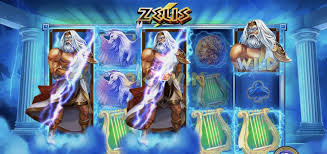Casinos abụrụla isi nkuchi na ntụrụndụ, Zeus Slot na-ejide ndị egwuregwu na-akwado ha na ohere ha. Evolutionzọ Evolumzọ Site Oge Ochie, Nchọpụta ntụrụndụ teknụzụ dị elu dị elu. Isiokwu a na-enyocha njem cannos na-adọrọ adọrọ, Na-enyocha mgbọrọgwụ akụkọ ihe mere eme ha, Mmetụta ọdịnala, na usoro ihe ga-eme n'ọdịnihu.
Ebe ochie
Echiche nke ịgba chaa chaa malitere azụ ọtụtụ puku afọ, Site na ihe akaebe nke egwuregwu dice na Mesopotemia na China. Ebe ndị mbụ edepụtara, Otú ọ dị, pụtara na Rome oge ochie, ebe egwuregwu dice na egwuregwu bọọlụ bụ ihe ndị a na-ewu ewu. Ndị agha Rom na ụmụ amaala ndị yiri agbamakwụkwọ, na-etinyekarị ihe ọ bụla na ihe niile sitere na ụgbọ ala na-agba ọsọ gaa n'ọrịa.
Ọmụmụ nke cha cha nke oge a
Okwu "Casino" n'onwe ya bụ Italian, na-agbanwe site na “casa” ma ọ bụ ụlọ, ma na-ezo aka na obere villa ma ọ bụ nke ọkọchị. Ọ bụghị ruo narị afọ nke 17 nke okwu ahụ mere na mkparịta ụka ịgba chaa chaa ọgbara ọhụrụ ya. Casino nke Venice, guzosie ike na 1638, na-ahụta cha cha n'ụwa ochie. Dị na Venice, Intionlọ ọrụ a nyere ohere maka ịgba chaa chaa n'ime ọnọdụ, Isetịpụ ogbo maka mmepe nke Celino Culturew.
Oke nke obodo cha cha
Dika ịgba chaa chaa nwetara ewu ewu na Europe, Obodo bidoro guzobe onwe ha dị ka ebe ịgba chaa chaa. Monte Carlo, Monaco, ghọrọ ndị okomoko na ndị na-egwu egwu dị elu na narị afọ nke 19. Casino Monte Carlo, meghere 1863, rụrụ ọrụ dị mkpa na ịkpụ casinos dị ka ebe na-egbu maramara. N'otu aka ahụ, vegas, Nevada, pụtara dị ka ihe ngosi nke ịgba chaa chaa America na narị afọ nke 20. The legalization nke ịgba chaa chaa na Nevada in 1931 mechiri ụzọ maka owuwu nke cesinos dị ka flamingo na Bellagio, Ntughari Las Vegas n'ime isi obodo.
Mgbanwe dijitalụ
Ọbịbịa nke ịntanetị gbanwere ụlọ ọrụ cha cha, na-eduga na ịrị elu nke nyiwe ịgba chaa chaa n'ịntanetị na ngwụsị narị afọ nke 20. Intanet Casinos na-enye mma nke igwu egwu site n'ụlọ, Na egwuregwu sitere na pker Classic na Blackjack gaa na oghere ọhụụ na egwuregwu. Prilifaeration nke teknụzụ mkpanaka amalitelarị ohere ịgba chaa chaa, na-ekwe ka ndị egwuregwu na -aga na Smartphones na Mbadamba ụrọ.
Njedebe nke teknụzụ na ịgba chaa chaa
Canonos ọgbara ọhụrụ na-abawanye na-etinye teknụzụ na-akụ na-eme ka ahụmịhe egwuregwu. Eziokwu mebere (VR) na augmented eziokwu (AR) na - ekere gburugburu ebe obibi ebe ndị egwuregwu nwere ike ịnwe egwuregwu cha cha na ụzọ ọhụụ. A na-ejikwa mmụta AI na igwe nyocha, Ntuli Egwuregwu Egwuregwu, ma bulie usoro nchekwa.
Ọdịnala na ọdịbendị
Casinos nwere omenaala na mmekọrịta ọha na eze. Ha na-egosipụtakwa ụkpụrụ na ụkpụrụ nke obodo obodo ha, site na olu nke moante Carlo na Exubence nke Las Vegas. Casinos na-arụ ọrụ na akụ na ụba mpaghara, Ecingwa Ọrụ na Ego. Otú ọ dị, ha anaghị arụ ụka; Okwu metụtara ịgba chaa chaa na nke ụkpụrụ omume na-aga n'ihu na-aga n'ihu na ụlọ ọrụ na-aga n'ihu.
Na-ele Anya Anya
Ọdịnihu Casinos nwere ike ịkpụzi site n'ọdịtọ na teknụzụ na ịgbanwe mmasị ndị ahịa. Nchịkọta nke teknụzụ nke Blockchain maka nghọta na izi ezi, Mgbasa nke Esports Tetting, na ịba ụba na-emesi ike na omume ịgba chaa chaa bụ ihe niile mmepe. Dị ka casinos na-agbanwe, Ha ga-aga n'ihu na-agwakọta ọdịnala, na-enye ndị mmadụ ụzọ ọhụrụ iji mee ka ha nwee oge na-enweghị ohere.
Mmechi
Site na egwuregwu DIce oge ochie ruo na nyiwe egwuregwu ndị dị elu, Casinos etinyela mgbanwe dị ịtụnanya. Njem ha na-egosiputa ihe nlere anya na teknụzụ, omenala, na ọha, na-egosi otú ihe ịga nke ọma nke afọ nwere ike isi gbanwee ma na-eme nke ọma n'ụwa nke oge a. Ka anyị na-ele anya n'ọdịnihu, Nchịkọta ọdịnala cha cha na-ekwe nkwa na nkwalite na-ekwe nkwa ime ka obi abụọ na-agba chaa chaa ndụ ndụ maka ọgbọ ndị na-abịa.






